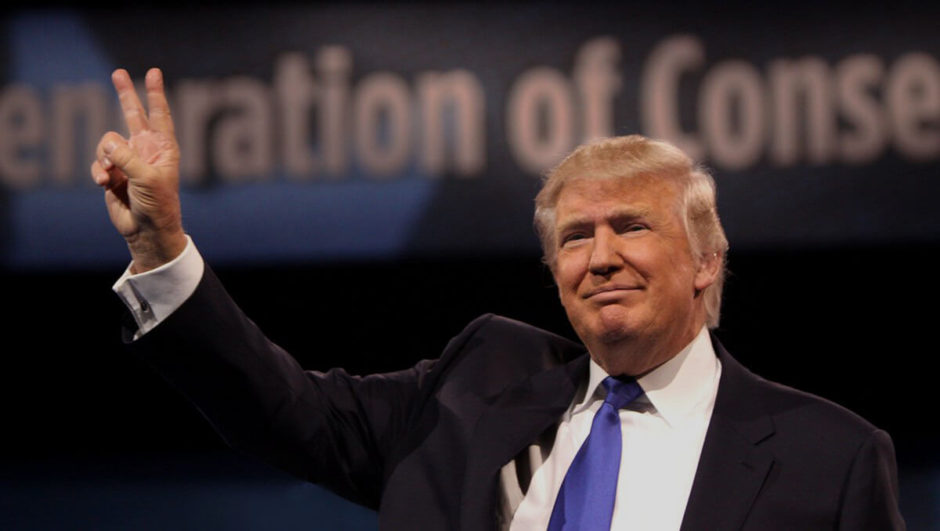The rhetorical flourishes flew thick and fast during U.S. President Donald Trump’s 28-hour whirlwind visit to Israel.
Describing his trip as “unforgettable,” Trump, in sonorous language, hit the right notes.
He spoke of the profound attachment of the Jewish people to the land of Israel. He reaffirmed the United States’ close bond with Israel. He condemned extremism in the Muslim world. He branded Iran as a regional threat and claimed that Israel and Sunni Arab states have a common enemy in the Iranian regime. He voiced optimism that Israel’s conflict with the Palestinians can be resolved.
These words must have been mostly music to Israeli Prime Minister Benjamin Netanyahu’s ears.
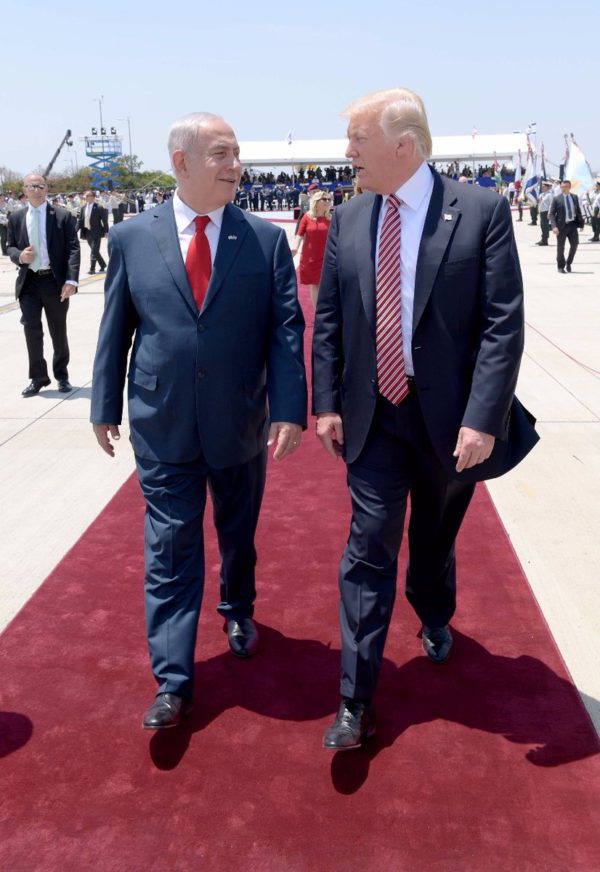
Trump arrived at Ben-Gurion Airport on May 22 on the first direct flight to Israel from Saudi Arabia, which has no diplomatic relations with Israel and remains in a technical state of war with it.
In Saudi Arabia, the birthplace of Islam, Trump received a lavish welcome from King Salman and members of the ruling House of Saud, despite his overheated campaign rhetoric that Islam is a religion of hatred and despite his call for a “total and complete” ban on Muslims entering the United States.
Urging Muslim nations to confront the scourge of Islamic extremism and terrorism, Trump called on Muslim leaders and clerics to drive out Islamic radicals. This was a supremely ironic moment, given that 15 of the 19 terrorists who wreaked havoc in the United States on September 11, 2001 were Saudis who had been radicalized by Saudi Arabia’s infamous strain of intolerant Wahhabi Islam.
Conveniently choosing to ignore such unpalatable facts, Trump focused intensely on the here and now. He touted the role that Saudi Arabia can play in reconciling Israel and the Palestinians. He talked about keeping Iran — the preeminent Shi’a power in the Middle East and Israel’s mortal enemy — at bay. He basked in the glow of the $110 billion arms deal the U.S. had signed with Saudi Arabia. He praised the Saudi decision to invest hundreds of billions of dollars in infrastructure projects in the United States.
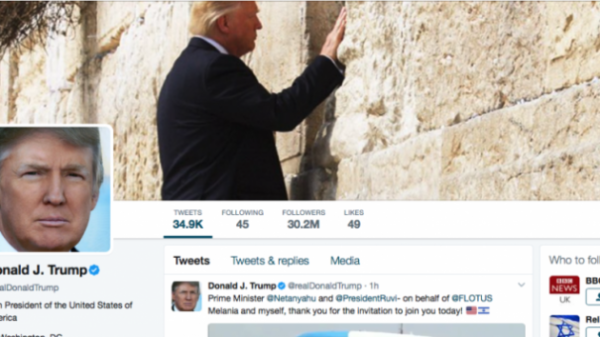
In Israel, some 48 hours later, Trump became the first sitting American president to visit the Western Wall in East Jerusalem, which Israel annexed after the 1967 Six Day War. Wearing a black yarmulke, Trump pensively touched the massive limestone wall in a gesture of solidarity with Israel. But in a sharp rebuff to Netanyahu, Trump rejected his request to accompany him to the wall.
Trump did not utter a word about the status of Jerusalem, having decided to indefinitely postpone his promise to move the U.S. embassy from Tel Aviv to the Israeli capital. This retreat from a solemn campaign pledge was a source of great disappointment to some Republican supporters as well as right-wing Israelis. Before arriving in Israel with Trump, U.S. Secretary of State Rex Tillerson said the United States was still considering “what impact” such a move would have on peace negotiations (which stopped in 2014).
In accordance with his upbeat view that he can pull off the “ultimate deal” between Israel and the Palestinian Authority, Trump said, “We have before us a rare opportunity to bring security and stability and peace to this region and its people, defeating terrorism and creating a future of harmony, prosperity and peace.”
Speaking at the Israel Museum just hours before his departure on the third leg of his nine-day journey, Trump said he was “personally committed to helping Israelis and Palestinians reach a … comprehensive peace agreement.”
Saying peace is possible if both sides “put aside the pain and disagreements of the past,” Trump said that PA President Mahmoud Abbas, whom he met in Bethlehem, “is ready to reach a peace deal.”
For his part, Netanyahu said that Israel’s “hand is extended in peace to all our neighbors.” He added, “The peace we seek is a genuine and durable one, in which the Israeli state is recognized, security is in Israel’s hands and the conflict ends for once and for all.”
In promoting his vision of peace, Trump refrained from delving into details. He spoke neither of a two-state solution nor the presence of Israeli settlements in the West Bank. But according to reports, Trump is supposedly thinking along the lines of recycling the 2002 Saudi-inspired Arab League peace initiative, which envisions a full Israeli withdrawal from the occupied areas, the establishment of a Palestinian state in the West Bank and the Gaza Strip and a resolution of the Palestinian refugee problem, all in exchange for a normalization of relations with the Arab world.
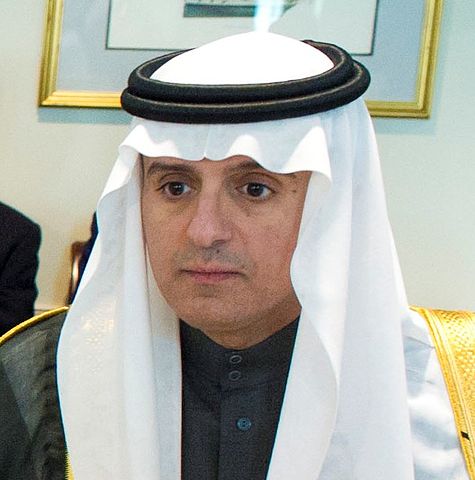
Israel has rejected this far-reaching proposal, but Saudi Arabian Foreign Minister Adel al-Jubeir was quoted as saying that the “Kingdom of Saudi Arabia stands prepared to work with the United States to bring about peace between Israelis and Palestinians and Israelis and Arabs.”
Netanyahu will be less than thrilled if the 2002 plan and its 2007 revised version are resurrected, since they would require painful Israeli concessions. But he was pleased by Trump’s promise to prevent Iran from developing nuclear weapons and continuing its support of “terrorists and militias that are causing so much suffering and chaos in the Middle East.” Trump, of course, was referring to two of Israel’s primary enemies, Hamas and Hezbollah.
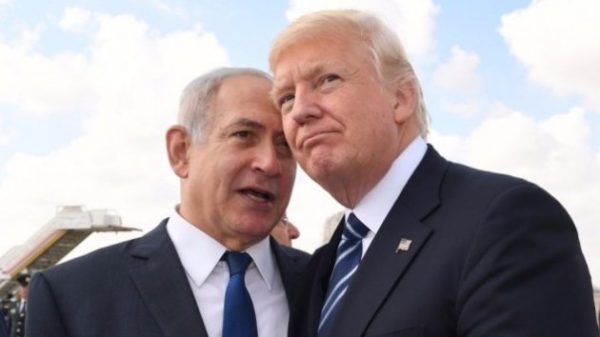
Trump, in another favorable nod to Israel and Israel’s relationship with the United States, referred to the Jewish people’s “ancient and eternal ties” to the Holy Land and reaffirmed his commitment to Israel’s well-being. “My administration with always stand with Israel,” he asserted.
And in a speech at Yad Vashem, the Holocaust memorial, education and research centre, Trump observed, “The State of Israel is a soaring monument to the solemn pledge we repeat and affirm: Never again.”
Trump had come full circle.
Commemorating Holocaust Remembrance Day in Washington, D.C. on April 25, he had said, “We pledge — never again. We must never shrink away about telling the truth about evil in our time.” And he had noted, “Those who deny the Holocaust are complicit in it.”
